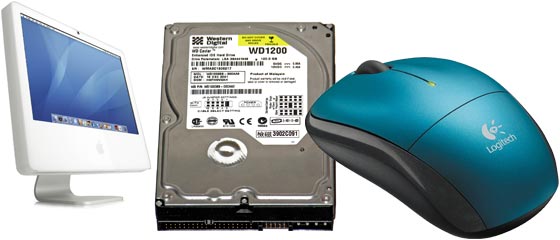 ![[Header]](../XuShared2/Line3.jpeg)

Add a Comment (Go Up to OJB's Blog Page) Sanity CheckEntry 927, on 2009-01-17 at 21:37:44 (Rating 2, Computers) I recently read a Tech Republic blog entry titled "Sanity check: Five things that make it great to work in IT" and I wanted to share my thoughts on the blog's points because, although I realise there are bad things about being an IT professional, there are some good things as well.
The first reason was "you’re the hero when you solve problems". Yes, I find I am often treated like a hero for solving problems that the client doesn't really understand. Sometimes they don't know enough about computers to know that what you did wasn't actually that hard, but other times its the opposite: they don't full appreciate some incredibly difficult task you have achieved!
The second reason was "you get to play with cool stuff". Well I guess that depends on who you work for and what sort of work you do but people who work in IT often do have cool toys and its often an important part of the job to evaluate these toys. I have heaps of computers, an iPhone, expensive AV equipment, a telescope, and all the other usual geek toys and having (and more importantly, using) that stuff is something I definitely take seriously.
Third is "you help make people more efficient". I've always thought efficiency was overrated because many attempts at increasing efficiency actually achieve the opposite. I prefer to make people more creative and to achieve more. That's not necessarily related to their efficiency.
Fourth is "your job is rarely dull or stagnant". The constant change in IT is both its greatest positive and its most frustrating negative. Its frustrating that old projects become unusable as the technology changes and that techniques you have mastered might become obsolete. But the constant change is also fun and a challenge which means its hard to get bored. Of course there are probably some people still programming mainframes in COBOL but most of us are working completely differently now than we were 10 years ago (that's assuming the person is a "vintage" IT person who has been doing IT for 10 years).
Finally there is "you get to be a revolutionary". This means you can use new technologies to do new and amazing things with them. Yes, that's definitely a lot of the appeal to me. I like to use new technologies to do interesting things and try to stay on the edge of what's coming in the future by getting involved with new developments.
There is one other thing that really makes the job worthwhile for me though. That's how programming, database design, building web sites, etc is such a great combination of science and art. The science is obvious: it requires logic, maths, and complex planning. The art includes the obvious stuff like graphics and colour schemes, but there is also the more subtle art of user interface design. Creating a system that people can use easily, just makes sense, and is enjoyable to use, is something I enjoy as a challenge.
The ultimate compliment is finding someone using a system I designed years ago, and assumed had long since been replaced with something more modern, but is still being used because it just works. That's cool!
I recently read that less people are doing university IT courses and that there might be a shortage in the future. That's good in some ways because it makes the rest of us more valuable, but I can't help thinking that the people are missing out on something a lot more interesting and rewarding than they might think because they are scared away by the geeky reputation IT experts have and are attracted by easier options, like business careers, instead.
 There are no comments for this entry. 
You can leave comments about this entry using this form. To add a comment: enter a name and email (both optional), type the number shown above, enter a comment, then click Add.
Note that you can leave the name blank if you want to remain anonymous.
Enter your email address to receive notifications of replies and updates to this entry.
The comment should appear immediately because the authorisation system is currently inactive.
![[Comments]](../XuShared/Comment1B.jpeg) ![[Preview]](../XuShared/Comment6B.jpeg) ![[Blog]](../XuShared/Up2B.jpeg)
|

![[Comments]](../XuShared/Comment1B.jpeg)
![[Preview]](../XuShared/Comment6B.jpeg)
![[Blog]](../XuShared/Up2B.jpeg)